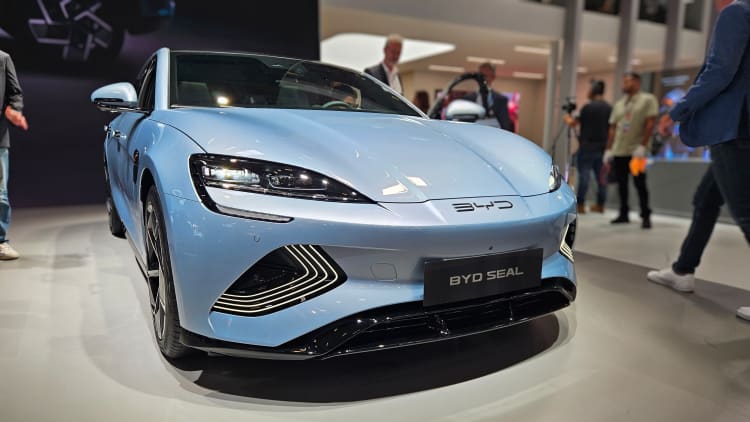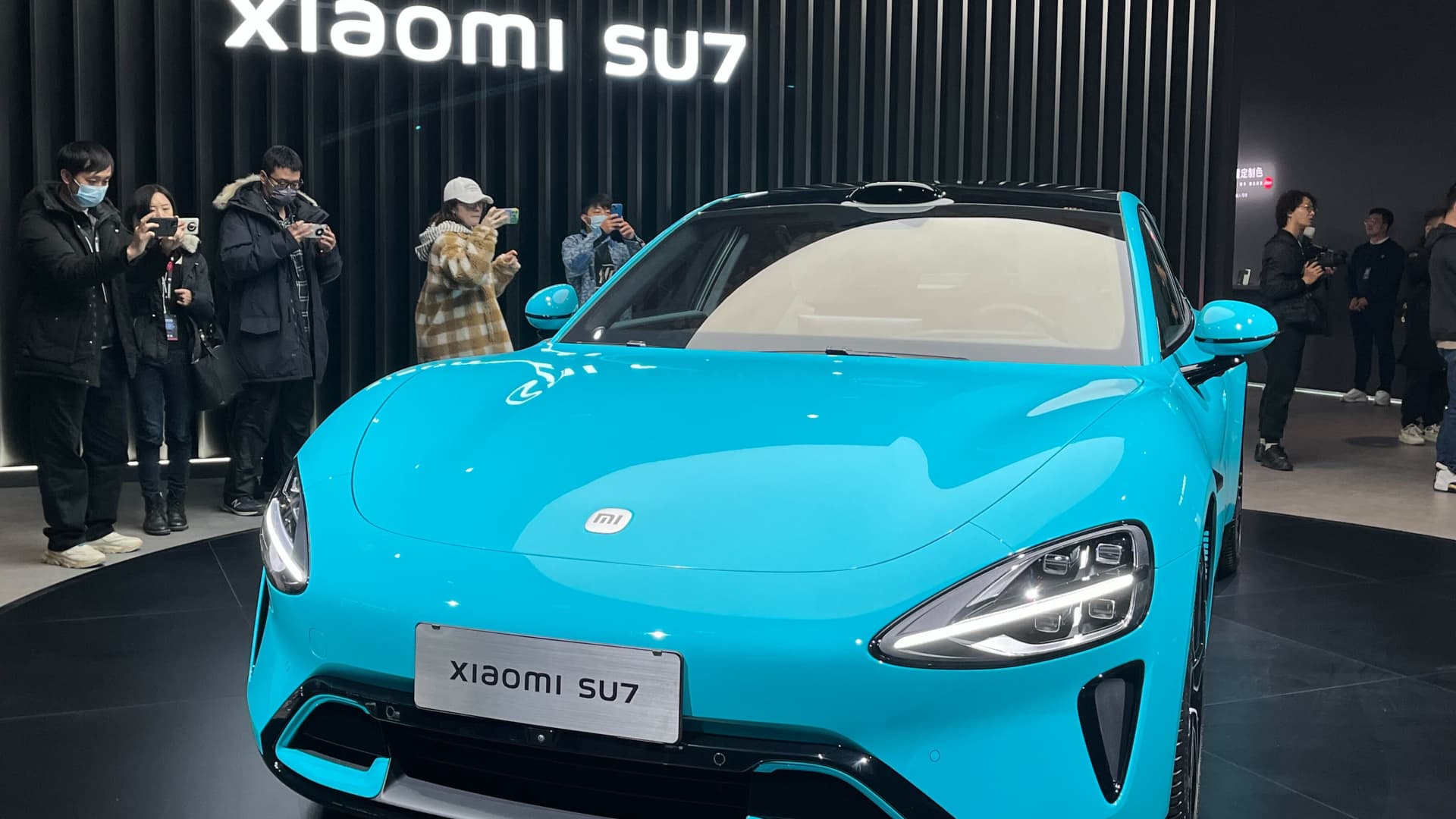Chinese consumer electronics company Xiaomi revealed Thurs., Dec. 28, 2023, its long-awaited electric car, but declined to share its price or specific release date.
CNBC | Evelyn Cheng
BEIJING — Chinese smartphone company Xiaomi said Thursday it will sell its first car for far less than Tesla’s Model 3, as price wars heat up in China’s fiercely competitive electric car market.
Xiaomi CEO Lei Jun said the standard version of the SU7 will sell for 215,900 yuan ($30,408) in the country — a price he acknowledged would mean the company was selling each car at a loss.
Tesla’s Model 3 starts at 245,900 yuan in China.
Lei claimed the standard version of the SU7 beat the Model 3 on more than 90% of its specifications, except on two aspects that he said it might take Xiaomi at least three to five years to catch up with Tesla on.
Deliveries are set to start by the end of April, he said. Lei also claimed that Xiaomi’s car factory, for which all “key” steps are fully automated, can produce an SU7 every 76 seconds. It was not immediately clear whether the factory was fully operational.
Earlier this week, the Xiaomi CEO said on social media the SU7 would be the best sedan “under 500,000 yuan” ($69,328).
The car is entering a fiercely competitive market in China, where companies are launching a slew of new models and cutting prices in order to survive. Chinese telecommunications giant Huawei has partnered with traditional automakers, most notably launching the Aito brand whose vehicles are often on display in Huawei smartphone showrooms.
Tesla‘s Model 3 is the best-selling new energy sedan in China that has a driving range of at least 600 kilometers (372 miles) and costs less than 500,000 yuan, according to data from industry website Autohome.
BYD‘s Han sedan starts at 169,800 yuan, according to Autohome.
Nio‘s ET5 starts at 298,000 yuan, while Xpeng‘s P7 starts at 209,900 yuan, the data showed. Geely-owned Zeekr’s 007 sedan starts at 209,900 yuan, according to Autohome.
Sales of new energy vehicles, which include battery-only powered cars, have surged in China to account for about one-third of new passenger cars sold, according to the China Passenger Car Association.
The SU7 is part of Xiaomi’s recently launched “Human x Car x Home” strategy that seeks to build an ecosystem of devices connected to its new HyperOS operating system. Most of the company’s revenue is from phones, with just under 30% coming from appliances and other consumer products.
Although Xiaomi is generally known for more affordable products, its President Lu Weibing told CNBC earlier this year the company has been pursuing a premiumization strategy since 2020 — and that there are about 20 million users in that price segment who might buy the SU7.
Lu told CNBC that the SU7 will first be sold to consumers in China, and that it would take at least two to three years for any overseas launch.
The company showed off the car at Mobile World Congress in Barcelona in late February, following a reveal of the vehicle’s exterior and tech in Beijing in late December.




































